World War Time Loop
Escaping the Myth of the Eternal Second World War
Out of the ferment of mid-century Romania emerged perhaps the most important scholar of religion of the last century – Mircea Eliade. Influenced by traditionalists such as Rene Guenon, Julius Evola, and Rudolf Otto1, Eliade’s interests were primarily religious and philosophical, concerned with the nature of time, its relationship to history, the grand sweep of mankind’s religious development, the function of myth and its relationship to reality, and the search for meaning. Like most traditionalists, he was intensely suspicious of liberalism, secularism, modernity, rationalism, and democracy, seeing in all of them forces of spiritual decay.
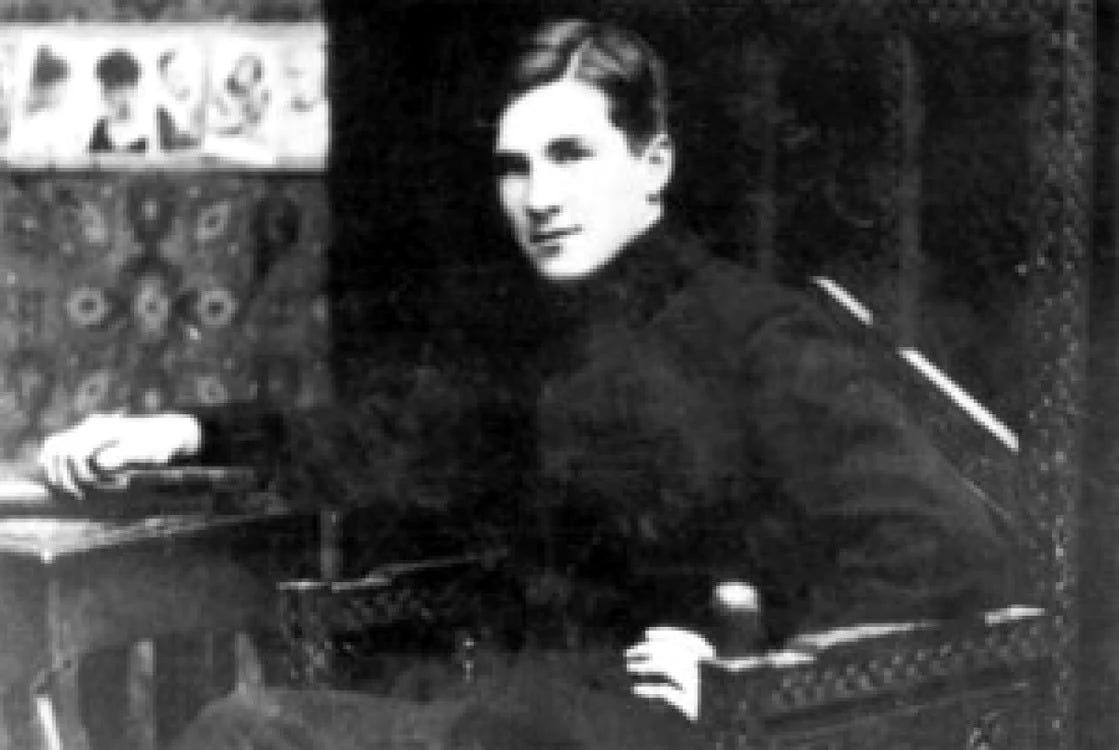
Later in his career Eliade would become renowned for his definitive work in shamanism and alchemy, but in his youth Eliade’s interests led him to become an outspoken supporter of the Iron Guard, seeing in the Legion of the Archangel Michael a path towards the spiritual regeneration of Romania. The Iron Guard was perhaps the most singular of the fascist movements of the 1930s: simultaneously rooted in fanatical Orthodox Christianity and fierce devotion to the Romanian nation, it conceived of itself as not merely a political organization but, more fundamentally, as a spiritual program that would foster men of discipline, duty, honour, and piety who would put the venality and corruption of the present order behind them. Eliade lent his voice to their cause, penning essays with titles like De ce cred în biruința Mișcării Legionare (“Why I Believe in the Victory of the Legionary Movement”) and România în eternitate (“Romania in Eternity”).
Eliade was arrested when King Carol II cracked down on the Legionary Movement, and sent to a prison camp; later, when the political winds changed, King Carol II was overthrown, and the Iron Guard was in power, he was sent to London as a diplomat. He would never again set foot on the soil of his fatherland. After political relations between Romania and Great Britain broke down on account of Romania’s alliance with Germany, Eliade was sent to Portugal, and following that to Vichy France, where he developed a relationship with the Indo-Europeanist Georges Dumézil2. During this period he also travelled to Berlin, where he met Carl Schmitt, and to Franco’s Spain. Seeing that the communists were going to win, and that the iron curtain was to descend over Romania, Eliade wisely opted not to return.
In 1949 – as some of his former comrades were being inducted into the horrors of Pitești, though of course he could not have known this – Eliade published what he considered his most significant work, the monograph Le Mythe de l’étérnal retoure: archétypes et répétition; the English translation, The Myth of the Eternal Return: Cosmos and History, came out in 1954. While they are only obliquely mentioned towards the very end, the events of the Second World War loom large in the background.
Eliade’s conception of the Eternal Return was quite distinct from Nietzsche’s, whose use of the term is well-known. To Nietzsche, the Eternal Return was to be understood quite literally, as the the idea that every single event in the history of the cosmos will eventually repeat itself exactly; he posited this as a spiritual challenge, suggesting that one should ask whether one had the strength to endure everything one had experienced, not only once more, but an infinite number of times, and in the face of all of this horror and suffering continue saying ‘yes’ to life. Eliade’s Eternal Return advanced the hypothesis that primitive man sought to escape from time: that he did not inhabit historical time as we understand it, but rather knew a sort of timelessness within endlessly renewing cycles – day and night, Full Moon to New Moon to Full, the procession of the seasons through, and so on.
To ancient man, Eliade argued, only that which was archetypal was truly real. That which could not be folded into an archetype, or which was not obviously a projection of an archetype, was merely temporary, therefore false and profane. The archetypes in this sense are not psychological constructs, as in the Jungian, but prototypical processes, events, and objects that exist in a sort of hyperspace beyond time – the perennial paratime of myth, in which everything happens at once, as Eliade put it in illo tempore or “at that time”, a distant past that is simultaneously contiguous with the present. The canonical example of this is cosmogony, the creation of the world, which was endlessly repeated through rituals such as New Year festivals that symbolically recreated the world, wiping away the mistakes of the past year that a new annual cycle might begin.
In this archaic relationship to temporality, everything that mattered in life was the echo of some primordial exemplar – each wedding a reflection of the first divine wedding, every birth an expression of the first birth of a god, every hunt the re-enactment of the first heavenly chase, every death the projection of the first sanctified sacrifice. In one sense this trapped ancient man within a series of endless repetitions, in which nothing new could ever really be done because everything really ‘real’, which is to say everything archetypal, had already been done. In another sense, however, it made man’s every mundane act a participation in the numinous.
The most familiar example of this in our own society is the Christian liturgical calendar. These are not mere holidays celebrating events in Christ’s career, but the means by which mythic time is brought into contact with profane time, thereby sanctifying it. Every Christmas, Jesus is reborn; every Good Friday, the saviour is crucified, and dies; every Easter, Christ is risen. We see this same dynamic in the sacrament of Communion, in which the Last Supper is symbolically re-enacted via provision of wine and bread to each participant. Even the choice of Sunday as the holy day of rest and worship is a symbolic re-enactment of the cosmogony of Genesis, which in turn sanctifies the labour of the preceding week by implication, as analogous to God’s creation of the world.
Nothwithstanding Christianity’s extensive ritual use of the Eternal Return, the Hebraic and Christian traditions, Eliade argued, were the first crucial break with this experience of time as an ahistorical, endless repetition of archetypes. History as such started as a theophany: direct intervention by God, by means of which a series of irreversible changes were made to the world. With each divine intervention, the world was fundamentally altered, and there was no going back: the world was forever after divided into the time before the theophany, and the time after. There was only one Resurrection, for example: an axis around which all of history revolves. Similarly, Adam and Eve were cast out of the garden but once, dividing the world into the time of Eden and the time after; Noah saved from the Flood a single time, dividing the world into the time before and after mankind’s annihilation and God’s promise to never wipe the Earth clean again; Moses’ receipt of the Commandments was a one-off, dividing the world into the time before and after God’s Covenant with Israel; and so on.
Eliade suggests that the archetypal existence of primitive man developed as a coping mechanism, a way of diverting his attention from the horror of history. Since nothing ever really changed – the archetypes being timeless – it follows that, as the modern phrase has it, Nothing ever happens.
By focusing his attention on the eternal recurrence of the archetypes, ancient man could forget the miseries of existence, and get on with existing. Christian historicity, with irreversible events unfolding according to a divine plan, makes this coping mechanism impossible for anyone who takes it seriously (though Eliade was at pains to note that the Eternal Return of cyclical archetypal patterns persisted amongst the less sophisticated, European peasants for example, for whom Biblical events were much more mythical than historical; indeed he seems to have believed that the historical view of time was only really accessible to a cognitive elite).
In place of the soothing elements of the Eternal Return, which wash history away, Christians must cope in a different fashion – not only is history generated by divine intervention, but time is sanctified by it: one takes solace that it is all part of God’s plan. A brief glance at the vast river deltas of ink that have been spilled on the subject of theodicy – the problem of evil, which the pagans never seem to have thought was a problem at all – indicates that this cope was only ever partially successful. The modern, however – by whom Eliade meant above all the secularist, the Marxist, the progressive – is even worse off: he is trapped in history, with no spiritual remedy for its relentless parade of meaningless atrocities, pointless agonies, and casually inflicted terrors.
Ultimately, Christians escape history through prophecy. The divine plan begins with Genesis, and ends with Revelations: it makes up a single historical thread, with creation at one end, and the final judgment at the other. In the end, there will be an end; all will be explained then; the faithful will be gathered unto the Lord, to return to their home in eternity.
To drive home the persistence of the mythologizing impulse into modern times, Eliade provides the example of a Romanian folktale that grew up around the accidental death of a young man who fell off a cliff on the eve of his wedding. In a remarkably short period of time, a matter of years, the local villagers had transposed the young man’s death into a fairy story, in which he had been hurled to his death by a jealous fae. The narrative that displaced the actual events within people’s minds had all the traditional tropes of a fairytale, including a long passage in which his heartbroken betrothed gave a lament rich with traditional mythological themes. The replacement was so thorough that the historical details were overwritten in the peasants’ minds entirely, despite the fact that the widow was still alive, and happy to tell anyone who asked that there had been no fairy, nor had she said any of the silly things attributed to her. Her memory, the villagers would say, was mistaken; she’d been driven mad by the trauma, and blotted the whole thing out of her mind. People’s desire for archetypal narratives is a powerful thing. They want simple stories, and the simplest stories are the stories they already know.
It would probably not surprise Eliade in the slightest that the war that broke the world he grew up in became the foundational myth of the world that grew up in its ruins. People need myths. They lack the strength to confront the unfiltered procession of atrocities that Eliade called the terror of history. In the wake of the unprecedented mass trauma of global mechanized total warfare, it was inevitable that the war itself would become mythologized. In the process, World War Two was stripped of its historicity, emptied of nuance, its many hues desaturated into shades of grey and then posterized into stark silhouettes of black and white. It became a comic book, a horror movie, a video game.
In the popular imagination of the Western normie, World War Two is an uncomplicated battle between good and evil. Hitler is the central character of the drama, a dark god of storms, blood, and iron whose hypnotic presence inspires unthinking devotion and atavistic werewolf frenzy in all who fall under his spell. Hitler is insane, driven by hubris to conquer the world, determined to exterminate every people that Nazi race science declares inferior to the Aryan ubermenschen. Hitler’s Nazis are physically perfect, wielding technology so advanced it verges on sorcery, but irredeemably maddened by infection with Hitler’s unreasoning hatred of the Other. The avatar of the Other is found in the person of the long-suffering, innocent Jew, whose only crime is to be scapegoated for his patient wisdom and kindly intelligence, which the brilliant but sadistic Nazi cannot abide.
Opposing Hitler, initially reluctantly, are the peace-loving Allies – always depicted in Hollywood as Americans first and foremost, British secondarily, and Russian almost never ... indeed the Russians are quite conspicuous in their absence, despite that Russia did most of the fighting ... the bear that didn’t growl. The Americans and British are not ubermenschen like the Nazis – they are just regular Joes, honest Midwestern farm boys and maybe slightly-less-than-honest Italian dock workers, with no superpower but gumption, basic human decency, and a belief in that most sacred of ideals, the equality of man. Their leaders embody this well-meaning imperfection: Churchill a fat drunk, Franklin Delano Roosevelt a cripple, Stalin a ... well let’s pass over Stalin. Flawed as they may be, unlike Hitler, they are not insane; they do not desire to rule the world; they merely wish to protect it from the Nazi beast.
In the course of fighting back the Nazi war machine, the struggling Allies uncover something horrible – the death camps of the Holocaust, in which the Nazis systematically murdered millions of Jews in gas chambers, hiding the evidence with crematory ovens that covered Europe’s fields with the ashes of millions of murdered bodies.
The climax of the saga comes not in Germany but in Japan, with the detonation of the atomic bombs – a horror made necessary by the otherwise adamantine fanaticism of bushido, inflicted not only to save the lives of American soldiers, but to save the Japanese from themselves.
After the Holocaust and the Bomb, nothing can ever be the same again. The old world is dead. Time is divided into the ante-Holocaust era and the post-Bomb era. A theophany has taken place; history has been generated once again. Though one might wonder which theos it was who intervened...
To call the popular narrative of World War Two a myth is not the same as saying that it is bullshit. Some of it certainly is, but most is not, and there is even a great deal of truth in the overall shape of the narrative. It is a myth not because it is untrue, but because of its sacred character: to question any aspect of it, in whole or in part, is to blaspheme, and thus to provoke defensive reactions of extraordinary vitriol. To be anything less than totally respectful to a sacred founding myth is to attack the very fundaments of the social order, to threaten to rip open a hole in the sky and let in the nameless horrors that dwell in the eternal dark beyond, eager to tear the cosmos asunder.
The World War Two myth is a creation story that begins with Ragnarok, in blood, fire, and chaos. This is perfectly suited to progressivism: since the present is always better than the past, and the future guaranteed to be better still, it follows that the creation myth must begin with something purely horrible, from which the only possible direction is upwards. This does not, however, mean that the myth is purely negative, as is often said. While there is no personal saviour figure to serve as the heroic focus of the story, and indeed the Devil plays the central personified role, there is in fact a salvific element arising from the atrocity of the Holocaust and the shock of the Bomb.
Here it is necessary to make a point that some of you may be deeply uncomfortable with. This is the implication of the role played by the Holocaust, which is analogous to that of Christ’s Passion: Julius Streicher’s cartoons in Der Sturmer are the taunting of Christ by the Roman legionaries; Kristallnacht is the crown of thorns; the refusal of the Western powers to take in Jewish refugees corresponds to Pontius Pilate washing his hands after the mob expresses its preference for Barabbas; the trains connecting the shtetls to the camps are Christ’s ascension up the slope of Golgotha; the gas chambers become the crucifix. But whereas the central Christian myth deified a single man – who, conveniently, was no longer around to take advantage of his status – the Holocaust sanctified an entire people. In the Western imagination the Jewish people have become a nation of messiahs, purified by centuries of suffering, their fundamental goodness placed beyond question, their motives forever beyond suspicion; their unspoken but presumptive role is to serve as saviours for all mankind, to be “the light unto nations”, carrying out a mission of tikkun olam – “to heal the world” – and holding the special privilege is of the ultimate get-out-of-jail-free card. And just as Christ’s divine innocence found its counterpart in the absolute depravity of mortal man, which could be redeemed only through Christ, so does the special status of the line of Abraham have its own implicit correlate...
Just as the Church formed to safeguard the legacy of Christ, the liberal international institutions arose in the shell-shocked aftermath of the war as guardians of the postwar moral order. The paradigmatic example of these international institutions is the United Nations. The UN was originally presented as a diplomatic venue, with the goal of stabilizing the postwar order and preventing another outbreak of global war, but it rapidly spawned a dizzying brood of subsidiary bureaucracies and Non-Governmental Organizations which now swarm the Earth in uncountable profusion, intervening in the name of ‘human rights’ in practically every inter- and intranational arena – migration, public health, communicable disease, foreign policy, diplomatic relations, trade, human trafficking, food, climate, energy, conservation, and so on.
The NGOs inherit from the World War Two mythos a halo of moral impeccability that automatically cleanses them of any culpability for whatever negative consequences their actions may result in, whether due to incompetence, or corruption, or open malice. NGOs have almost no formal power, but this serves to sanctify their moral power. The good intentions of the NGOs are axiomatic within the moral order publicly inhabited by our political and cultural elites, who will almost always defer to their policy suggestions, just as Europe’s kings once bent the knee to papal bulls. To implement the policies advocated by the NGOs is practically obligatory: humankind is irredeemably tribal, prone to violent conflict over irrational divisions of racial or cultural identity; thus it falls on the managerial class – and especially to the priestly elite manning the NGOs – to protect man from himself. This has led the UN/NGO complex to rapidly evolve into a sort of informal, worldwide governance apparatus which – for all that their rhetoric invariably invokes their commitment to ‘democracy’ – is wholly unaccountable to any direct democratic oversight. Indeed, the UN/NGO complex might be seen as the social matrix within which the quiet redefinition of ‘democracy’ from ‘popular will’ to ‘consensus of the institutions’ was gestated. It is, by the way, the consensus of the institutions that this redefinition not be made popular knowledge.
In keeping with Eliade’s theory, the cosmogonic myth of World War Two is not simply a story we tell to justify the political order we inhabit in the present, but a morality play that we re-enact on a regular basis.
Mythic archetypes aren’t the only thing that eternally returns. Yes, that’s right – this is the part where I remind you, dear reader, that this several-thousand-word essay took an absolutely absurd amount of time, skullsweat, and emotional energy to write, rewrite, edit, re-edit, rewrite, and edit again. Unlike some of the grifting pretenders on this site, I’m not plagiarizing the commodified intelligence of robots and passing it off as my own work – this was all done by a real, live human being, who, unlike robots, needs to eat, drink, be merry, and keep a roof over his head. Now, you can absolutely ignore all of this and continue reading for free. I won’t stop you. There’s no paywall. There could be a paywall, but there isn’t. Instead, I’m relying on your generosity, your aristocratic sense of noblesse oblige, your desire to elevate yourself from mere consoomer to High Patron of the Arts and Sciences (or at least, of Rambling Schizoposts). The choice is yours:
Every leader who becomes an adversary, immediately becomes Hitler – Gamal Abdel Nasser, Slobodan Milošević, Saddam Hussein, Muammar Qaddafi, Bashar al-Assad, Hugo Chavez, Vladimir Putin. The question of whether to prefer diplomacy to military action becomes a recapitulation of the struggle between the appeasers, represented by Neville Chamberlain, and the prophets, whose patron saint is Winston Churchill. Of course, the prophets always begin the debate with the upper hand, because as everyone knows, the moral of the 1930s is that appeasement is moral weakness and practical error: it merely opens the door for hungry dictators to take more. Eventually, you will have to fight anyhow, so you might as well invade now.
Domestic politics also becomes a captive of the creation myth. The myth’s prologue is found in the rise of the Nazi party in Germany. Hitler duped the people: he ascended to power according to the rules of the Weimar Republic’s constitution, but he was an enemy of liberal democracy, which he snuffed out the moment he had the power to do so. Thus Donald Trump, Jair Bolsonaro, Viktor Orbán, Xavir Milei, Germany’s Alternative für Deutschland, France’s National Rally, Britain’s Reform Party, Canada’s Freedom Truckers ... all of these become, in the liberal imagination, folded into the archetype of the National Socialist German Worker’s Party assaulting the foundations of the kind, progressive Weimar Republic. It does not matter that none of these leaders, parties, or movements bear the slightest actual resemblance, whether philosophically, politically, or even aesthetically to the ideals espoused by the Nazis. That the AfD, for example, favours freedom of speech and a free market unencumbered by regulatory overburden – the polar opposite of the Nazi preference – is perfectly irrelevant. What counts is opposition to the people who stand in the place of the people who opposed Hitler, the inheritors of the institutions that were developed in the wake of the war. The mere act of opposition renders opponents Nazis, and their leaders Hitlers.
An important way in which the Great War myth endlessly repeats itself is in our political and intellectual classes’ consistently weak opposition to communism and its various ideological derivatives. The Cold War with the Soviet Union notwithstanding, the awkward truth is that the Anglospheric powers allied themselves with Stalin and his monstrous regime. This has led to a schizophrenic attitude towards communists, who cannot be opposed too strenuously as they are after all, by unspoken but universal acknowledgement, the most effective opponents of fascism, which though defeated in historical time, threatens always to return from its unassailable fortress in illo tempore.
Since communism is fascism’s deadliest enemy, to oppose communism too strongly is to risk becoming a fascist oneself; thus, liberalism – in the original sense of the term – found itself morally disarmed. Denouncements of communism therefore tend to take the form of bloodless economic disputation, which studiously avoids dwelling upon the oceans of blood spilled by history’s most evil ideology. One might complain that communism is inefficient, but it’s considered impolite to draw attention to the cloying miasma of spiritual despair that it spread to every corner of the world that it touched. Arguments about the most effective means of producing and distributing widgets are singularly unconvincing to the emotional imaginations of the excitable young, who are then left wide open to indoctrination with communist poison. This is not limited only to flabby graduate school Maoists with Che Guevara t-shirts and strong opinions about Rosa Luxemburg’s preferred pronouns. Wokism is bluntly called Gay Race Communism for a very good reason, because that is exactly what it is: the application of Marxist class agitation to race and sexuality. Even the idea of ‘equity’ which serves as the central axis of DEI is merely a rebranding of ‘from each according to his abilities, to each according to his needs’. But you are not supposed to notice this.
One may be called a Nazi despite disagreeing with the Nazis on everything, but of course, to agree with the Nazis on anything is also to become a Nazi. Among other things, National Socialism was racist – it proclaimed the belief that there are biological differences between the races; that the German race is superior to all others; that the herrenvolk should subjugate the untermenschen; that the German race should seek biological perfection; that the German race should seek to increase its numbers; that the German race should increase the lebensraum available to it by armed conquest; and that every German should first and foremost serve the interests of the German race. There is no necessary connection between the elements within this bundle of beliefs: for example, it does not necessarily follow from ‘races are different’ that ‘one race is superior to another’ (is a dog superior to a giraffe?); it does not follow from ‘one race is superior to another’ that ‘the superior should exterminate the inferior’; nor is ‘the interests of the individual should be absolutely subordinated to those of the racial collective’ a necessary corollary of any other proposition in the bundle. Nevertheless, these beliefs are automatically bundled together in the War Myth’s demonology, such that to invoke one (‘races are different’) triggers a cascading assumption of belief in all of the others.
Since the Nazis are the ultimate evil, it follows that racism is the ultimate evil, and that any tendency not only amongst Germans but among any of their cousin ethne to be ‘racist’, is just as evil as the racism of the Nazis ... indeed, is morally identical to Nazism. From this premise followed legislation to eliminate racial barriers to immigration; to strike down laws discouraging miscegenation; to eliminate eugenic programs, whether they sought the sterilization of the unfit or simply the proliferation of the fit; to desegregate schools and neighbourhoods; to scour all forms of discrimination, whether overt or ‘implicit’, from university admissions and corporate employment.
To oppose any of this, to voice the smallest doubt about the wisdom of mass immigration, or affirmative action, or any other policy that finds its justification in opposition to racism, is to risk being called a Nazi ... and thereby to activate, in one’s own life, the archetype of Total War by which the Allies (in this case your friends, family members, professional colleagues, casual acquaintances, and neighbours) mobilize to destroy the fascist beast (you). In their minds, they are storming the beaches of Normandy, and you are Hitler, demented and alone in your bunker in Berlin, destined to blow your brains out. Get back in your basement, incel, and follow your leader.
The inversion of Nazi morality means that those other races that the Nazis judged inferior must in fact be superior, their long suffering at the hands of racists a demonstration of their essential virtue. In the case of Jews this manifests as widespread admiration for the Jewish intellect, supposed to originate in a genetic advantage over every other group, which is offered as the explanation – the only permissible explanation – for their remarkable success in American business, finance, academia, politics, and entertainment. That an invocation of genetic superiority is almost indistinguishable from Nazi ‘race science’ goes everywhere unremarked, as does the curious double standard that Whites are prohibited from invoking this same explanation for their own superior socioeconomic performance as compared to blacks; likewise unremarked is that, whereas it is mandatory to proclaim White success as the product of ethnocentrism, it is forbidden to apply the same reasoning to Jewish success. In the case of blacks, this inversion of the Nazi racial hierarchy manifests in the widespread negrolatry of the post-war period: the elevation of black music and culture over more characteristically European forms, the worship of black athletes, the depiction in the media of blacks as masculine, heroic, and preternaturally wise. And of course, to a large degree blacks are given broad protections against legal punishment for their own bad behaviour, in consequence of the numinous aura historical victimhood places upon them. In recent years this has been extended to practically every non-White immigrant group.
Postwar morality as inverted Nazi morality is seen not only in racial matters, but in sexual politics. The Nazis opposed sexual degeneracy – promiscuity, homosexuality, transgenderism, and so on – from which it follows, naturally enough, that all of these things must be good, celebrated, and encouraged. Thus our cities organize Pride parades; our children are catechized with the gender unicorn; our boys exhorted to castrate themselves; our girls praised for vivisecting their bodies by lopping off their breasts, excavating flesh from their forearms as raw material for phalloplasties, and taking hormonal drugs that make them grow moustaches.
This preoccupation with ‘sexual liberation’ is not incidental, but is considered a key tactic in the permanent war against the Nazi menace. The postwar theory of Adorno’s ‘authoritarian personality’ drew an explicit connection between an upbringing within a healthy, loving family, the sexual ‘repression’ of heterosexual monogamy that the family relies upon, and a tendency towards political authoritarianism. The direct implication of this was that the traditional Christian societies of the very countries who fought the Nazis harboured within themselves the seeds of Nazism. If the nuclear family is the nest in which fascism grows, that nest must be burned out. Sexual licentiousness becomes a barrier against the return of the monster.
Every educational system is partly about inculcating devotion to the society’s myths. Ours is no exception. Thus indoctrination with inverted Nazi morality plays a core role in our schools. The Nazis were racists, therefore White children must be antiracist; the Nazis opposed sexual deviance, therefore White children must embrace it; the Nazis encouraged pride in one’s nation, therefore White children must be taught shame. All of this must be seen as part of the perennial struggle against the Nazi war machine, which permanently threatens to burst forth from its home in illo tempore to menace the liberal order. As there is nothing more dangerous than the Nazis, any crime may be countenanced to head off the threat ... and indeed, to teach children to hate themselves – to hate their race, their nation, their parents’ faith, their instincts, their very genitalia – to teach them that the legacy they inherit is purely negative, one of oppression and genocide and ‘stolen land’ ... this is an exquisitely refined form of psychological torture. It is, considered objectively, child abuse on an industrial scale, a sort of psychiatric war crime. While our therapeutic methods are far more sophisticated than the crude violence employed by the communist wardens in postwar Romania, I cannot help but see the echoes of Pitești in what happens in our schools. Where the mid-century communists sought to harness pain and humiliation to hammer the souls of patriotic Christian men into the New Soviet Man, those of our time seek to gently massage the young into the New Antiracist Genderqueer. It is no accident that so many of our youth are depressed, that so many seek solace in suicide ... while so many others embrace the self-hatred, and become rabid enforcers of the regime. There are always those who cope by identifying with their torturers, and become enthusiastic torturers themselves.
The policies that are justified, are indeed necessitated, by the World War Two creation myth are without exception suicidal.
Affirmative action cripples our institutions by larding them down with incompetents, while steadily demoralizing the competent, thereby leading to a terminal competence crisis.
Failure to enforce the law due to concerns over disparate racial impact results in streets wracked by crime, our cities turned into ruined wastelands, stalked by feral gangs, haunted by their opiod zombie livestock.
Indulgence of sexual deviance opens children and women to harassment, molestation, sexual assault, and rape, which they are effectively prohibited from protecting themselves against.
Worst of all, mass immigration threatens to displace ancient peoples who have inhabited their lands for thousands of years ... in a dark irony, it is for the most part precisely those peoples who fought the Nazis who are now threatened with extinction as their birth rates plummet and their irreplaceable homelands fill with arrogant foreigners, whom they are not allowed to exclude because exclusion is what the Nazis would do. Indeed, taking steps not to go extinct is what the Nazis would do. The Nazis sought high birthrates, after all, so it follows that we should celebrate childlessness ... and if the Nazis sought lebensraum, “living space”, has our civilization not become one vast sterberaum ... a “dying space”?
It doesn’t matter that such policies are suicidal, because the founding myth is fundamentally nihilistic. Just as the war ended with Hiroshima and Nagasaki getting nuked, so do we expect by default that the world will one day end in thermonuclear ekpyrosis. Just as every political conflict and every societal question becomes a reenactment of the Allies’ stand against the Nazi menace, so is the time between the end of the war and the end of the world one long twilight struggle against racism and hatred, which must finally end in annihilation. Even global warming can be seen as a derivative of this nuclear eschaton – popular depictions of climate change show the world burning up, becoming an uninhabitable wasteland, baking forever in an overheated oven that boils the oceans and sterilizes the soil.
The shitlib is the purest product of the Great War myth. The shitlib has imbibed the postwar antifaith more deeply than any other. Talk to one and you will almost invariably excavate, not only the self-hatred of learned ethnomasochism – this they wear on their sleeves with pride – but a fundamental nihilism regarding the future. Everything is doomed, whether by strategic weapons exchange or the profligate burning of hydrocarbons. They care not for the future, for there is nothing there but death. They take a kind of solace in this, for at least it will bring an end ... it will put a stop to the terror of history, and most especially that most horrible of creatures, the White man, the generator of history par excellence. Many look forward to this, as a liberation.
This is all quite insane, but so long as the great myth of the Great War remains intact we are trapped within its boundaries, doomed to endlessly repeat it.
Revisionists have been nibbling away at the War Myth almost since it began to take on its final form in the 1960s, questioning this or that aspect of the narrative. Some merely present a somewhat more nuanced, historically informed view, pointing out for example that Hitler made numerous entreaties of peace, and that the whole affair was therefore, as Pat Buchanan titled his infamous book, The Unnecessary War; that had it not been for Churchill’s intransigence and FDR’s boundless ambition, the war would have ended with the conquest of Paris and Moscow. Others go still further, insisting that the entire narrative be inverted, that Hitler was actually the tragic hero, the Nazi cause a doomed struggle against the communist nightmare, the Holocaust nothing but atrocity propaganda manufactured ex post facto to justify allegiance with the unmentionable Stalin, and that the bad guys won. Whether mild or extreme, revisionism is always incredibly contentious because to question any element of the myth is to commit blasphemy. At the same time none of it has ever mattered, because revisionist discourse has been a quiet murmur on the margins, the province of cranks and weird apostates.
No myth lasts forever, and we may have witnessed the first sign of a large crack in the war myth with Tucker Carlson’s interview of the historian Darryl Cooper, who set the Internet on fire by suggesting that Winston Churchill was actually the primary villain of World War Two. As Darryl Cooper himself emphasized both in the interview and in a follow-up essay on Substack, he meant that to be deliberately provocative hyperbole, and it worked: currently the interview has over 34 million views on X, and almost a million views on YouTube. For the last week it’s been one of the only things that people have been talking about on X, with Churchill partisans and de facto adherents of the War Myth warring with revisionists who consider Britain’s wartime leader either an incompetent fool who broke the British Empire out of vainglory, or a scheming traitor who shattered Britain deliberately as a service to his Zionist paymasters.
Following up on his excellent earlier essay Hitler: The Ultimate Rorschach Test, friend of the blog LucTalks went hard on the Churchill partisans, their dumb loyalty to the mythic narrative of World War Two, and their seeming imperviousness to historical nuance in a short piece that is well worth reading:
This essay is already long enough that there is not room to relitigate the massive topic of the Second World War, or to try and pass judgment on who the good guys and the bad guys were. History as morality play is silly in any case. It invariably ends in caricature. Suffice to say that I can’t quite bring myself to condemn Churchill, who, whatever else one says of him, was possessed of immense erudition, a silver tongue, and impressive physical courage that is all too rare among our own political class ... but I also cannot quite forgive his hand in the final dissolution of the British Empire, nor can I overlook his role in the numerous lesser catastrophes that preceded it, such as Gallipoli. By the same token, whatever the admirable qualities of the Austrian painter – also a brilliant orator, a talented artist, a brave and decorated soldier, a sincere and passionate patriot – if Churchill stands condemned for bringing the slow, grinding destruction of imperial decay and multicultural invasion down on Great Britain, Hitler likewise must answer for losing a war he started, and bringing destruction down on the heads of his own people. In many ways Churchill and Hitler are far more alike than they are different: sharing similar virtues, such as their individual bravery and eloquence, and similar flaws of character – Hitler was a lazy Bohemian layabout, Churchill a drunk. They were even prone to making similar statements:
“It is the primary right of men to die and kill for the land they live in, and to punish with exceptional severity all members of their own race who have warmed their hands at the invaders' hearth.” - Winston Churchill, The Birth of Britain
No one would be surprised if you told them that Hitler had said that.
Similar equivalencies can be drawn in many other ways: if the Germans are condemned for civilian deaths, so must be the Allies for the starvation caused by their naval blockades, the half a million women and children burned and blown apart by terror bombing of German cities, and the millions of German civilians who perished of exposure and starvation during their forced march out of Eastern Europe and afterwards in Allied concentration camps. And of course, looming above everything is that uncomfortable but unavoidable truth that it was after all the Nazi beast which fought the midnight darkness of Communism ... a darkness which the Allies protected and nurtured. The Iron Curtain was not Hitler’s fault, but Churchill’s and FDR’s; had it not been for Operation Barbarossa, the Iron Curtain may easily have reached the English Channel, and beyond.
Who were the good guys? Who the bad? These are the wrong questions to ask. War is hell, and men do what they must. Perhaps, as some argue, Germany had no choice but to invade Poland, to defend the ethnic Germans living there; perhaps Hitler’s invasion of Russia was similarly unavoidable, if, as some say, Stalin was preparing to invade Europe while Germany was preoccupied with the Western front. Similarly, perhaps Britain had no choice but to press on with the war to the bitter end, due to its fixed imperative of preventing Europe from consolidating under a single hegemonic power – a matter of national survival for the island nation. Perhaps everything that happened was inevitable: not a war of good against evil, but national interests playing out as they had to, with brave men and madmen and cowards and monsters on every side.
The key point is this: we are now entering a time in which the formerly unquestionable mythology is becoming questionable. The holy pieties are no longer so widely respected as they once were. Many have tapped the sacred idols with their philosophical hammers, and found hollow plaster where they had expected solid marble. The old myth is dying.
Our world is incomparably different from the world that was shattered by the Great Wars of the twentieth century. Where Europeans once stood divided by irreconcilable differences of national interest, we now stand united by common threats to our dying homelands. Each of our countries has been softly subjugated by a parasitic transnational elite which has quietly captured our institutions, and which regards the home population with undisguised antipathy; each of us struggles with catastrophically low birthrates, in part due to the policies of that elite; each of us faces ethnic dispossession via replacement migration, orchestrated by that same class of globalist reptiles.
I do not think the answer to our plight involves a simple inversion of the old myth – Allies bad, Axis good, Churchill villain, Hitler hero. Rather it will be a desacralization of the story entirely, removing it from the realm of mythic archetype and consigning it to mundane, profane, ordinary history. The goal should be to find ourselves in a place in which the Second World War is regarded with the same emotional charge as Napoleon’s conquests or Ghengis Khan’s Eurasian rampage or the squabbling of Assyrian kings: which is to say, with supreme indifference, as simply a thing that happened. An interesting thing, to be sure; an influential thing; a historically significant thing; but not a sacred, holy thing.
If we are to free ourselves from the suicidal vortex we’re trapped in, we must exorcise the evil spirits of World War Two which have led us via endless repetition of their nihilistic psychodrama to the edge of doom. However, while relegating the Second World War to mundane history is necessary, it is insufficient. We need a new myth, and we do not yet have one. Until a replacement myth is articulated, one capable of capturing the imaginations of a critical mass of our people, the old myth cannot be displaced. I do not know what the new myth will be, but I suspect we will find it in our long struggle of national liberation against the transnational snakes who are trying to strangle our civilization to death. That story, however, is not yet written.
Thank you for reading what I suspect may have been a somewhat emotionally difficult read for some of you. Even now, feelings are incredibly strong on this subject, but I think it’s very important that our society have an open, calm discussion – of what the war meant, of its societal consequences, of where the narrative is taking us. This turned out longer than I expected – and yes, I know, I always say that – but it’s such a huge subject that even skimming over it superficially is hard to do in a short period of time.
As always, my boundless gratitude to all of my supporters. You have no idea how much it means to me that you are willing to part with your time and energy in exchange for a few thousand words every week or so. It’s impossible for me to properly express how thankful I am. It amazes and humbles me every day that I’m able to do this.
See here for a recent review of Otto’s book The Idea of the Holy by friend of the blog Jeff Russell.
About whom, see this excellent piece by Librarian of Celaeno, Are You Dumezilmaxxing?



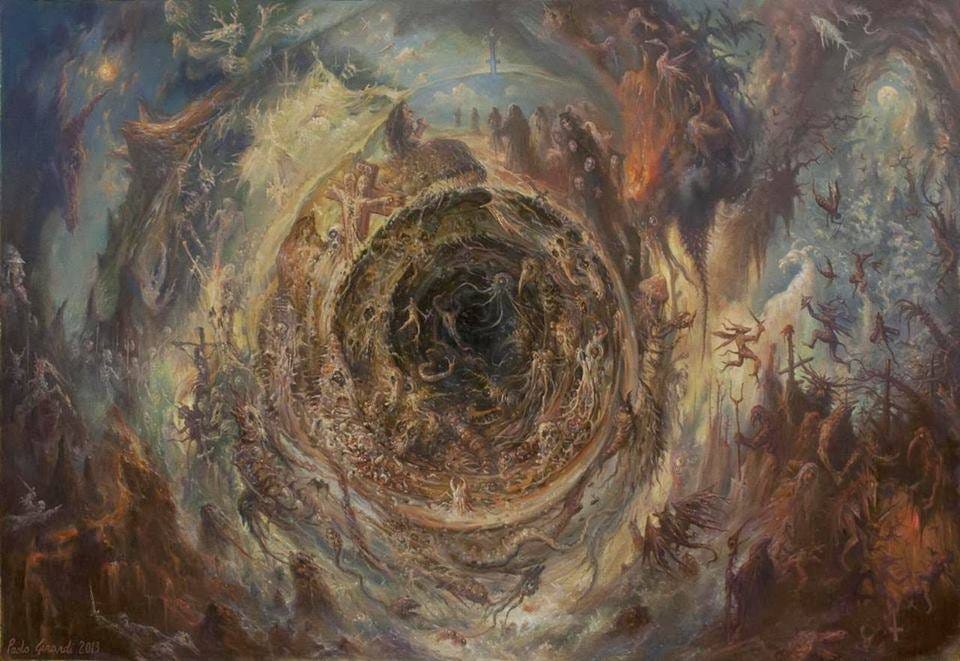
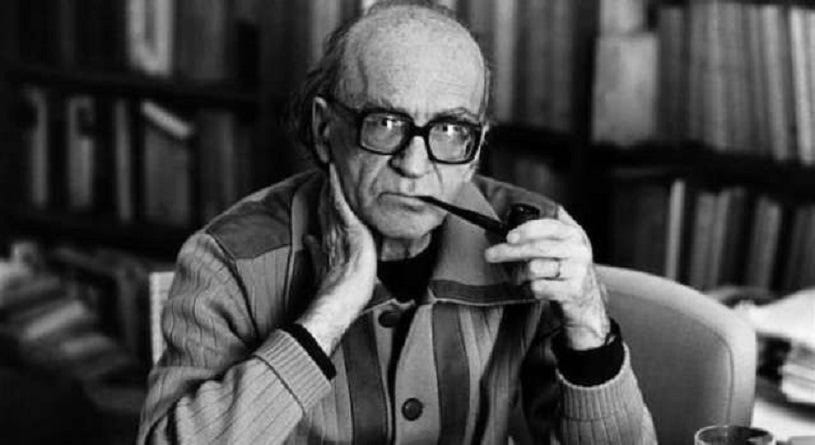
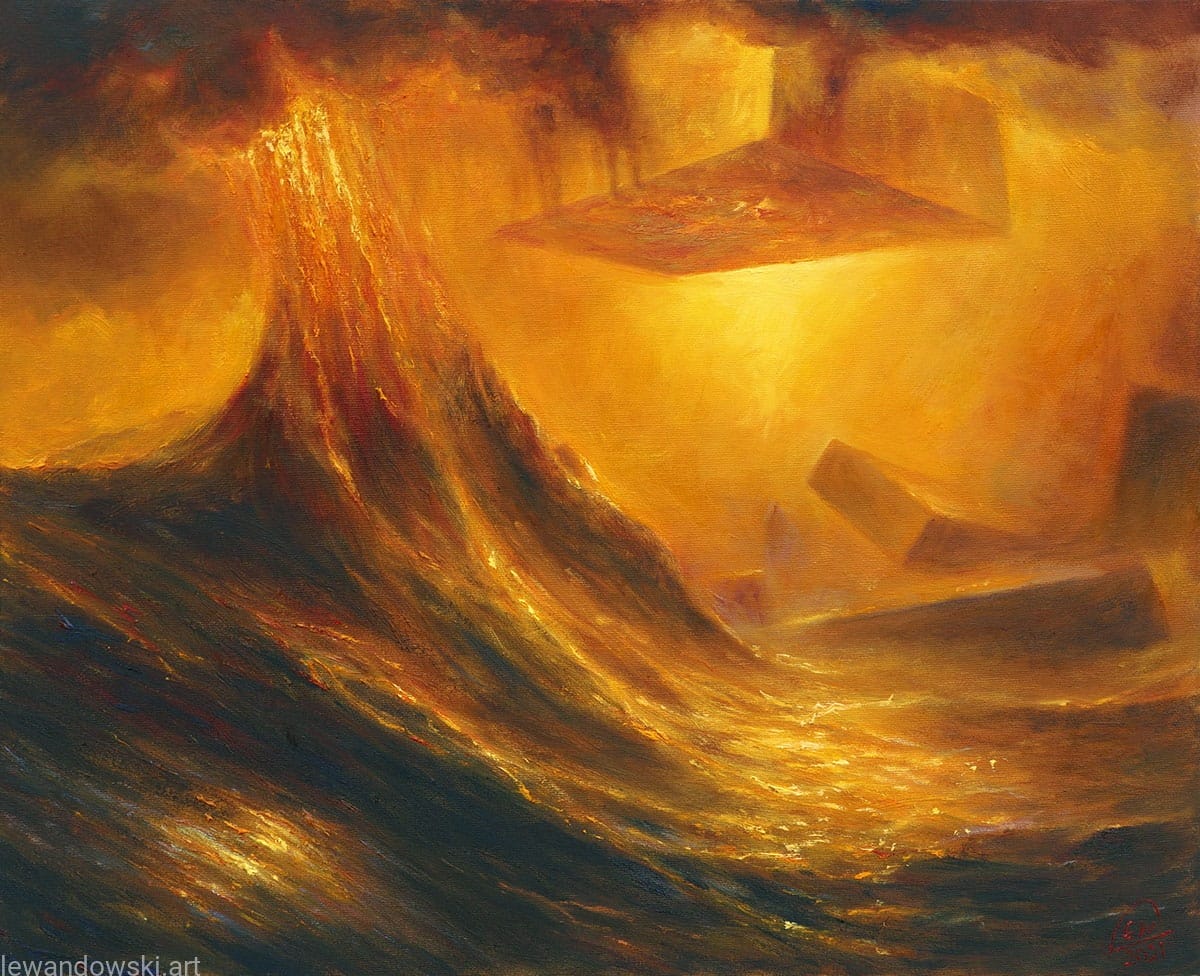

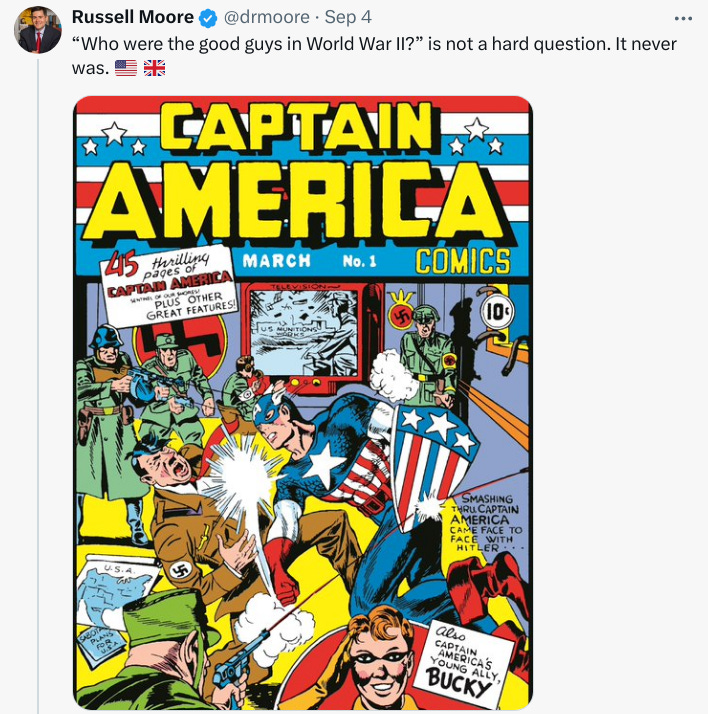
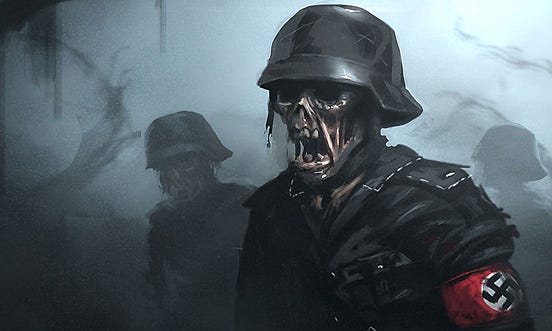
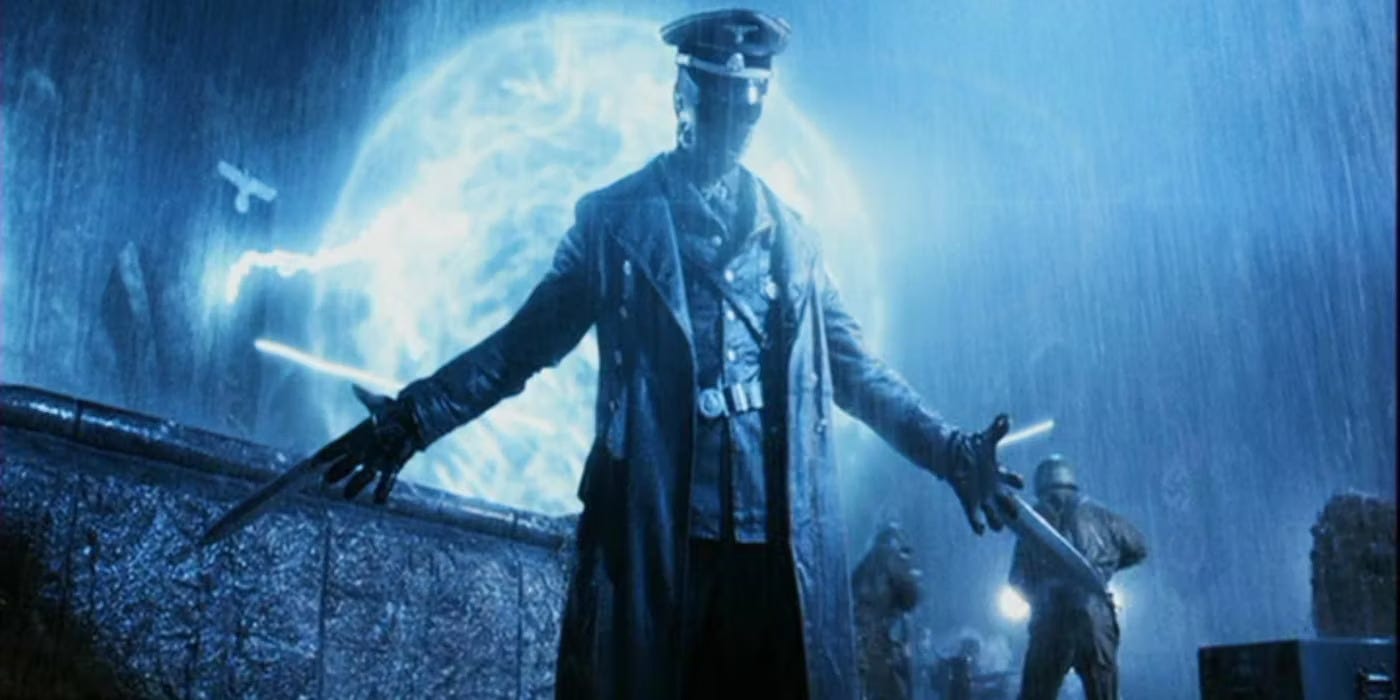

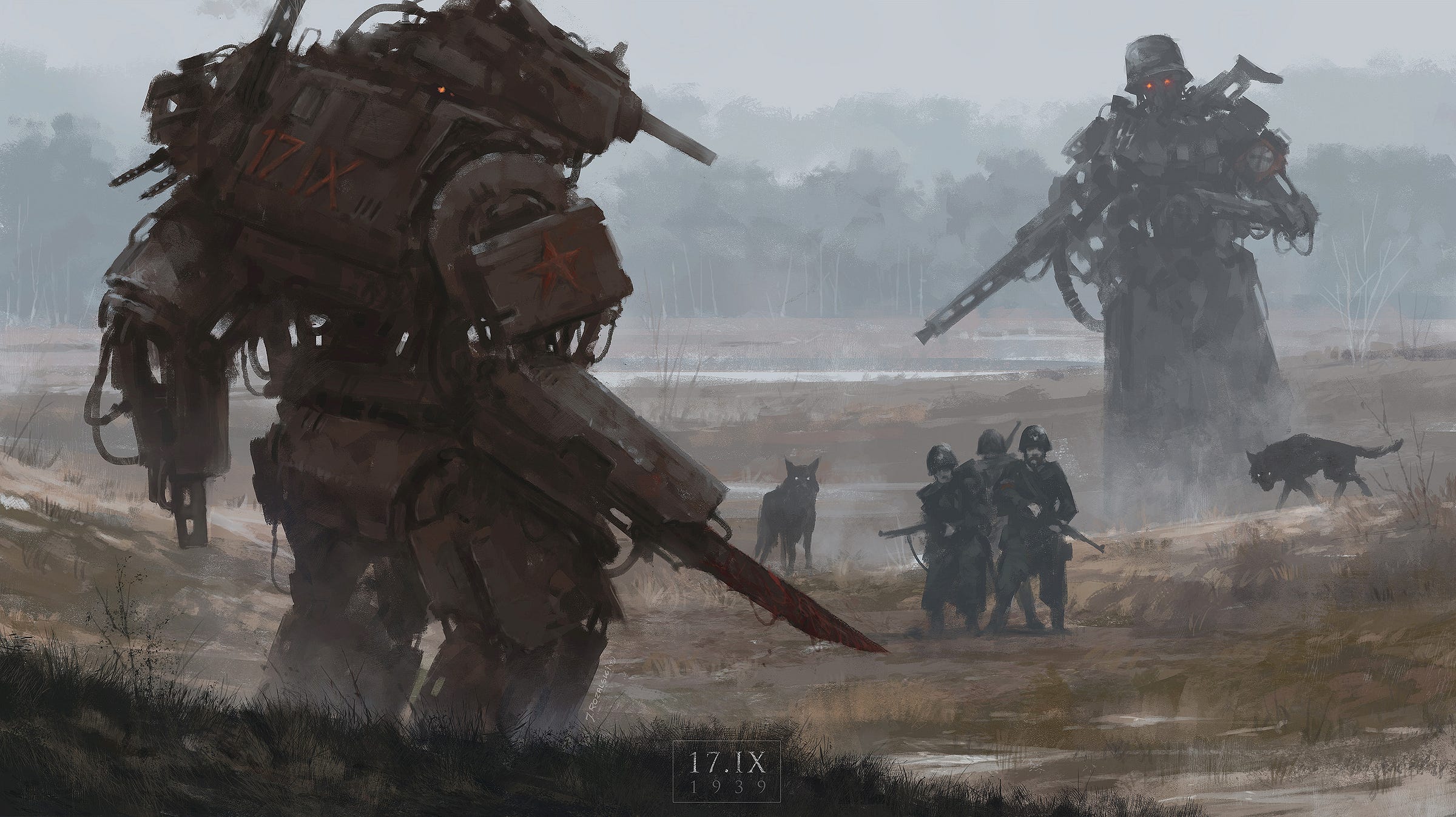
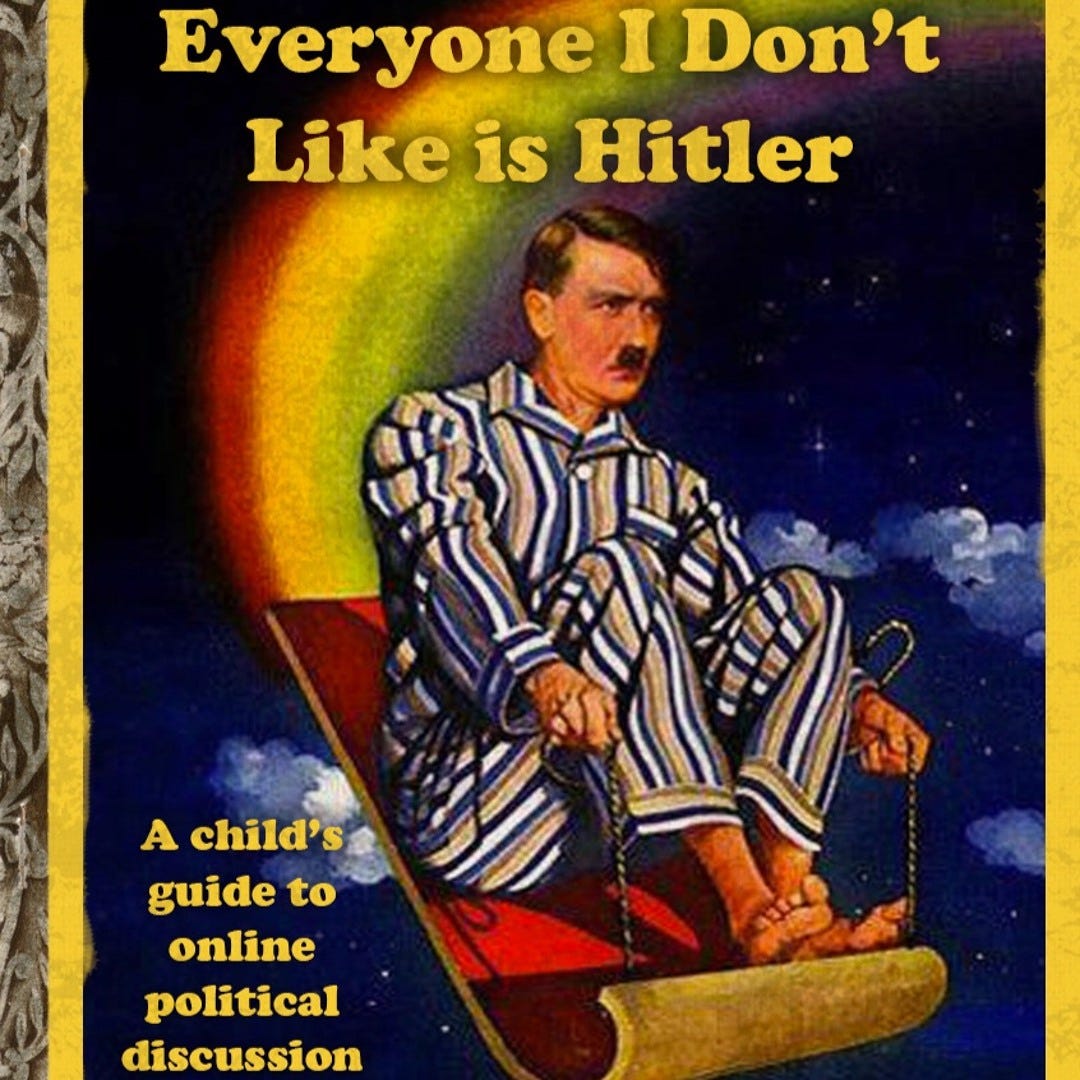
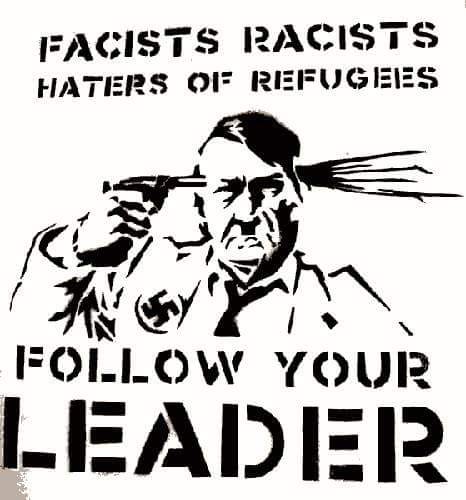
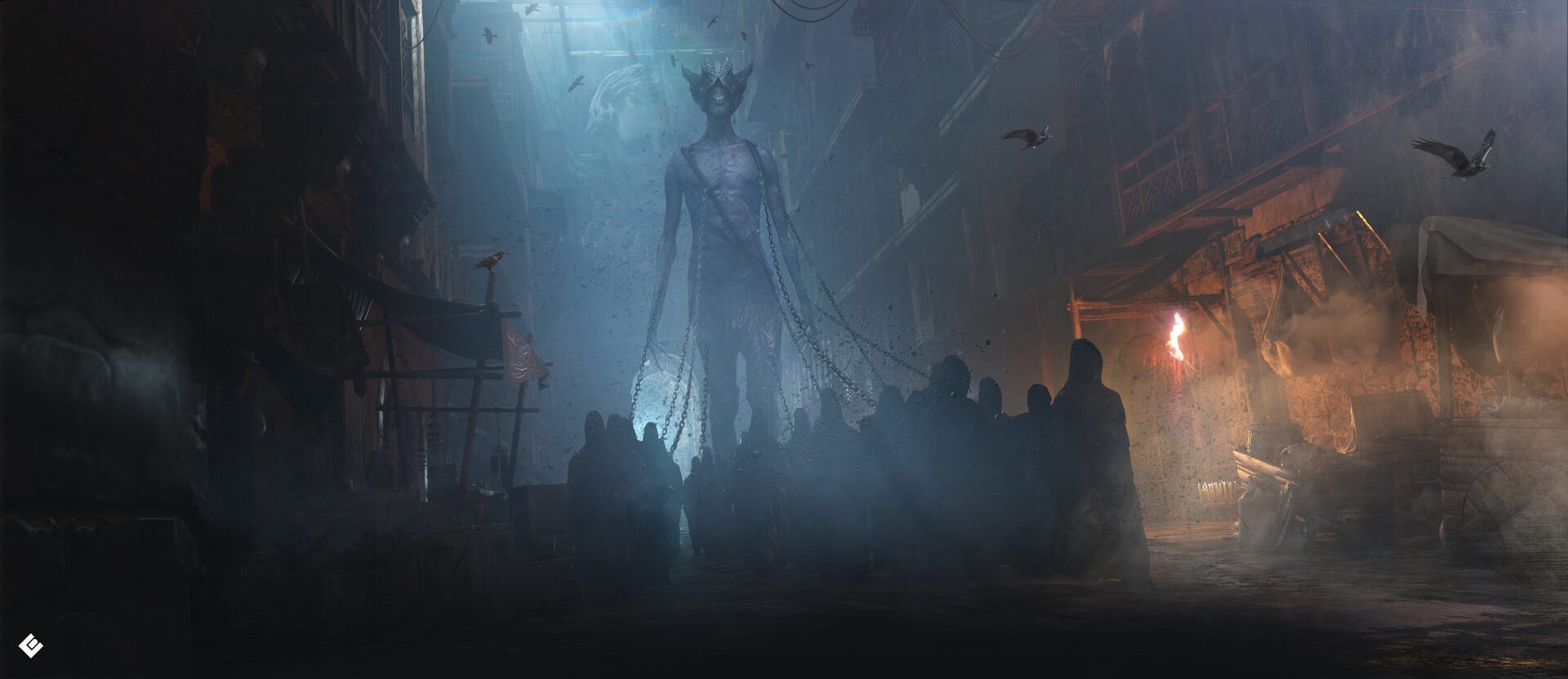
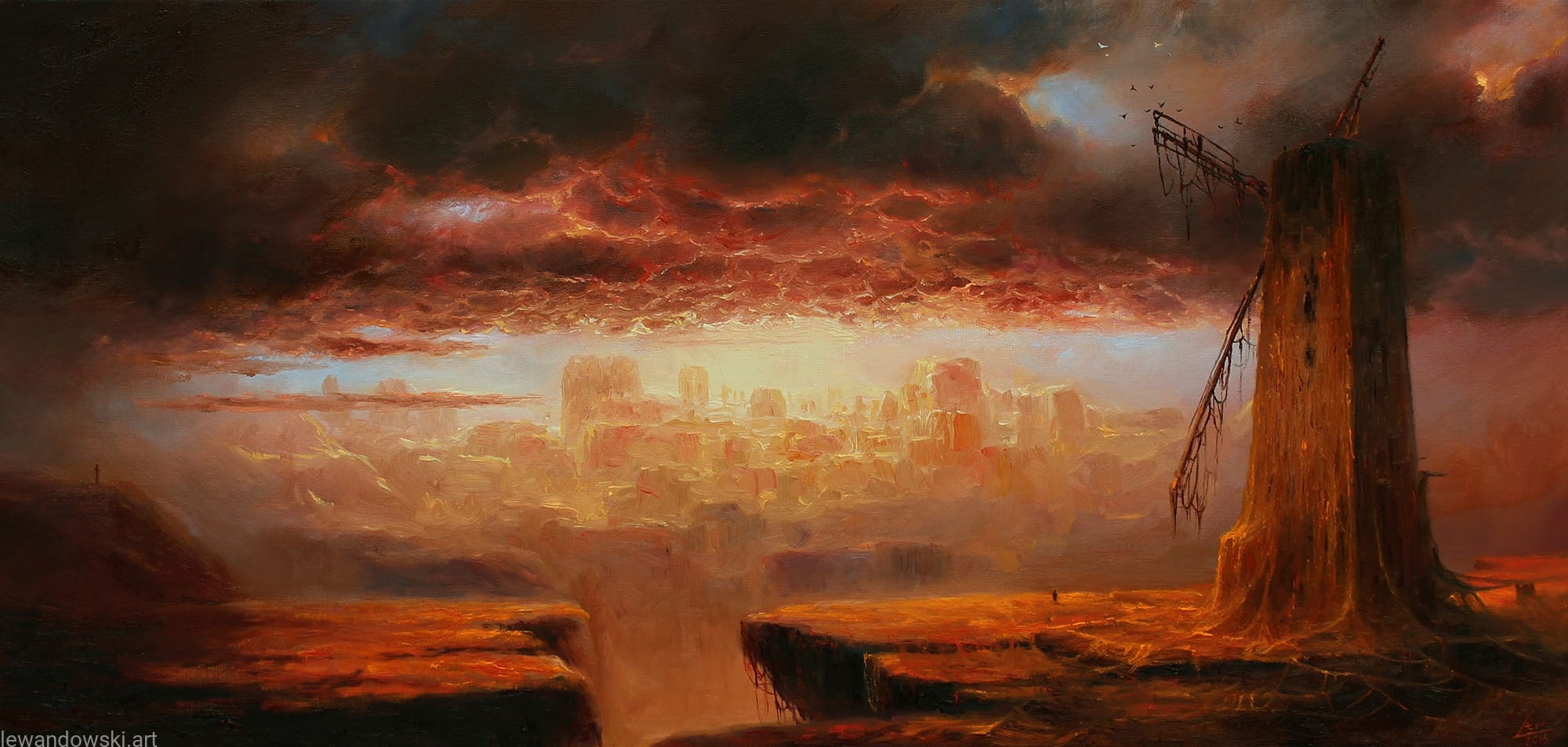
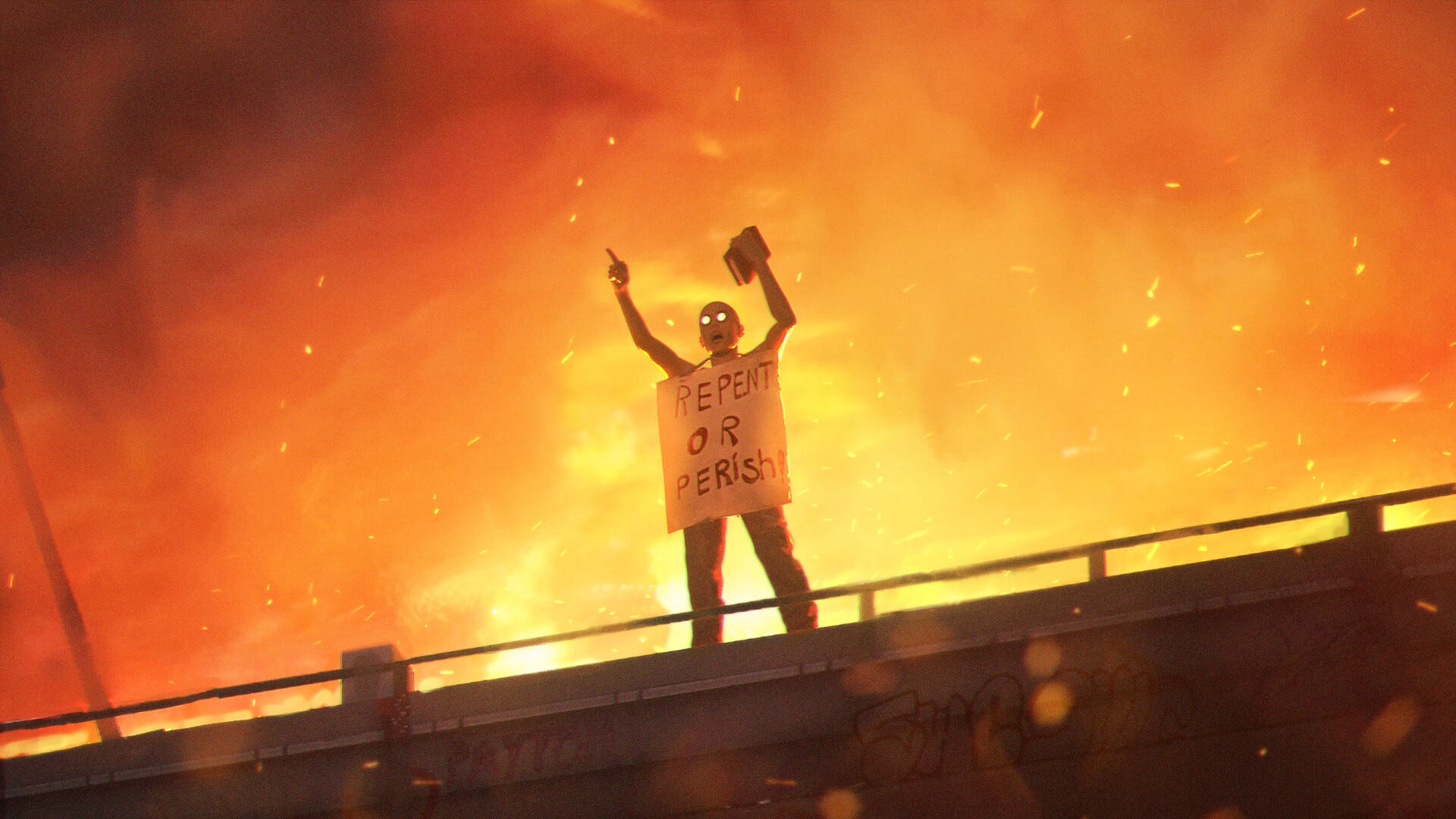

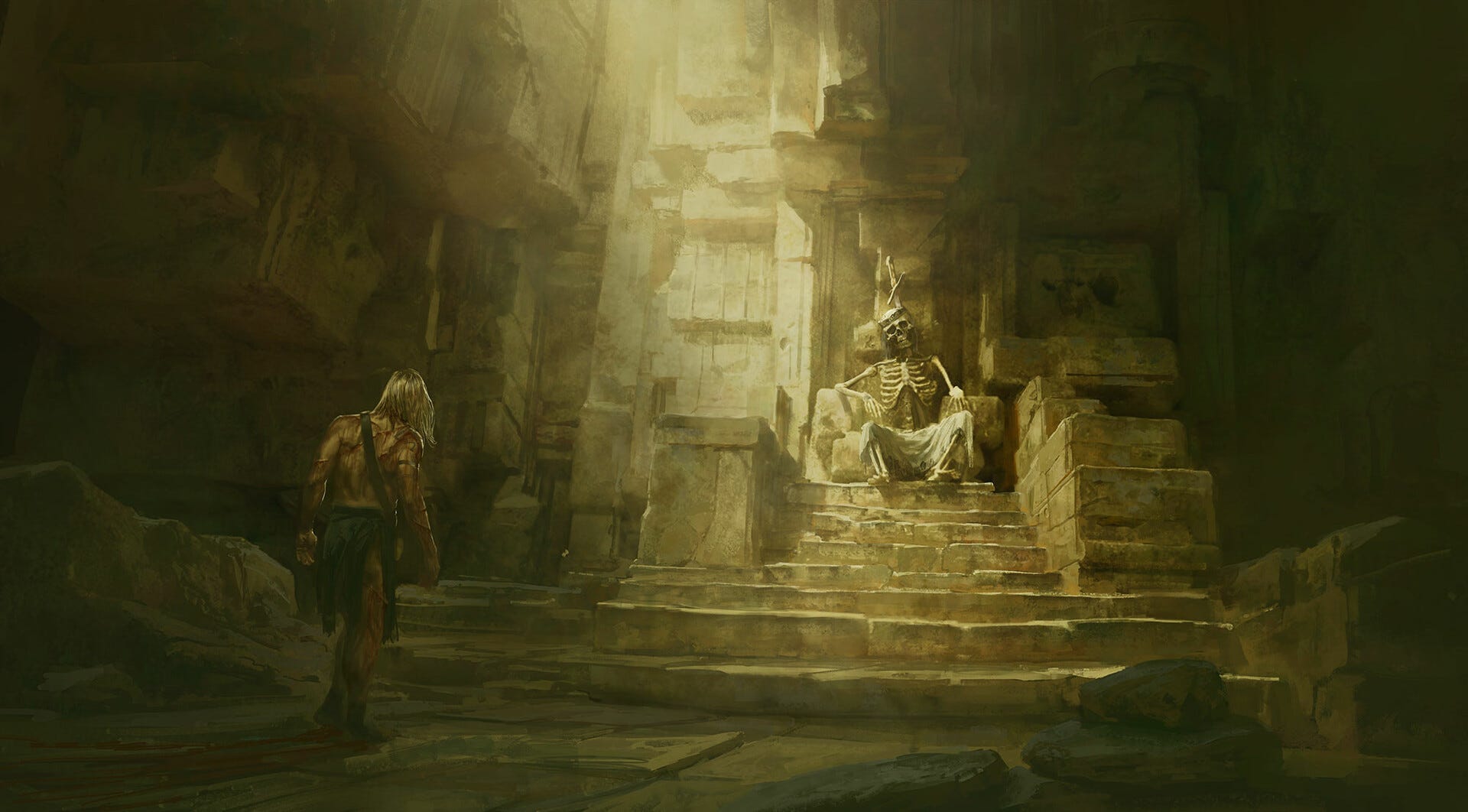
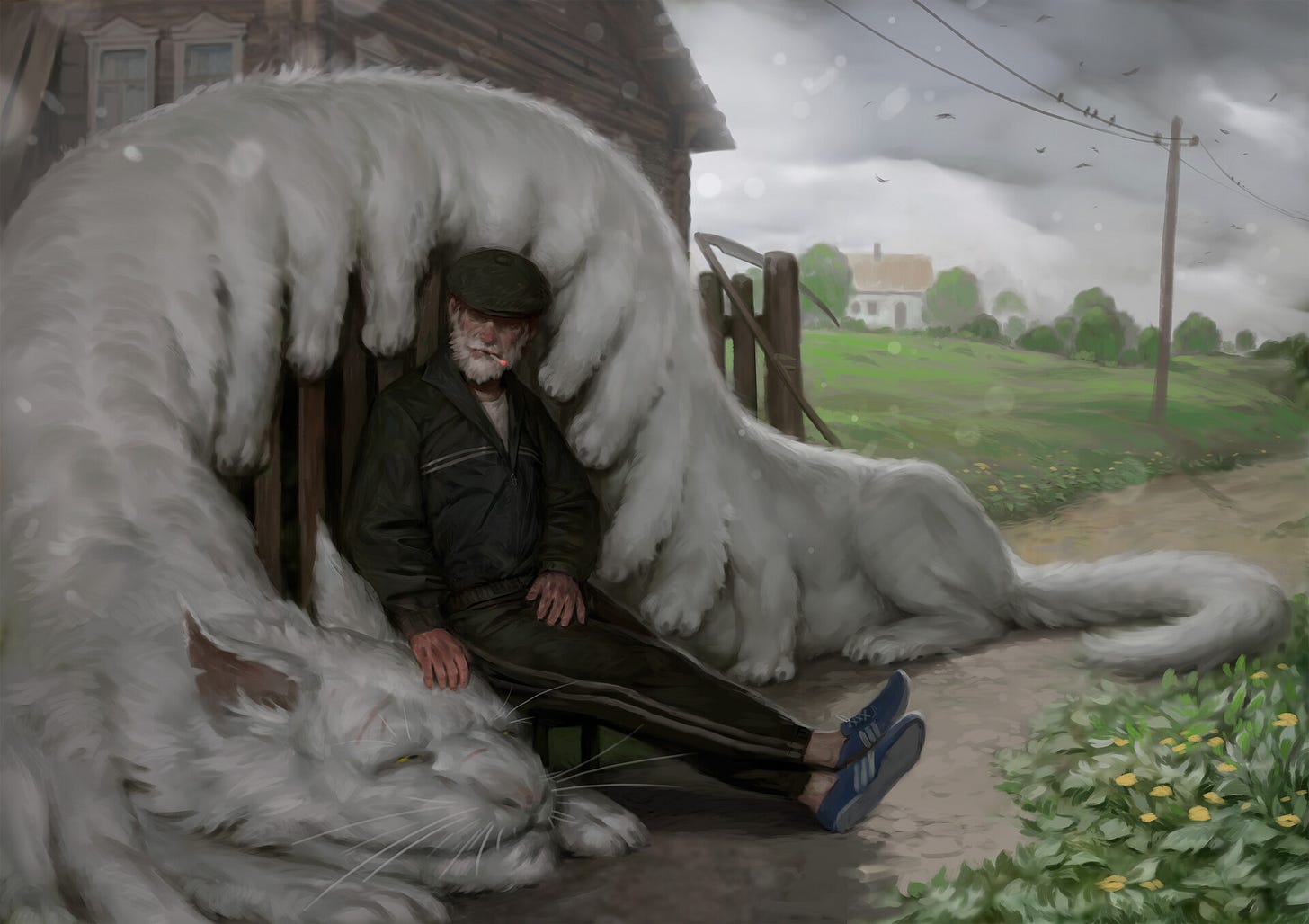
I think this article summaries perfectly the anthropological consequences of our (quasi)religious beliefs which serve as our culture’s foundation. As such it also clearly delineates that history, whenever it will reemerge, will come to judge us as the singularly most evil people to ever exist. More so than the Akaddians who dressed their walls with the skins of their enemies, or the Aztecs that created pyramids of skulls to their gods. What we have done to ourselves is the permeation of suicidal nihilism into every fibre of our existence, and there will be an ocean of evidence to show it.
May God have mercy on us all.
Most excellent essay and about time. I know I have said this in comments before, but I was innoculated from the WW2 worship seen among loathsome boomer GOP types (eg, neocon clowns like VD Hanson, Glenn Reynolds and other regime propagandists) by my dad, a veteran of the Italian front (a medic). Around the time of Saving Private Ryan I was sort of obsessive with the war. I mentioned this to my dad. He looked at me with a mixture of sadness and contempt. He told me that I’d never understand the war, he barely did but it wasn’t the “bullshit you’re getting told in school or that Ambrose shit.” He loathed Stephen Ambrose and the band of brothers thing. He did like Bill Mauldin, so Mauldin is one of the few sources on the U.S. experience I trust. And Paul Fussel. The Americans were no more than mercenaries for FDr’s demonic ambition in that war. Ditto the Yanks who died for Lincoln and muh eternal Union.